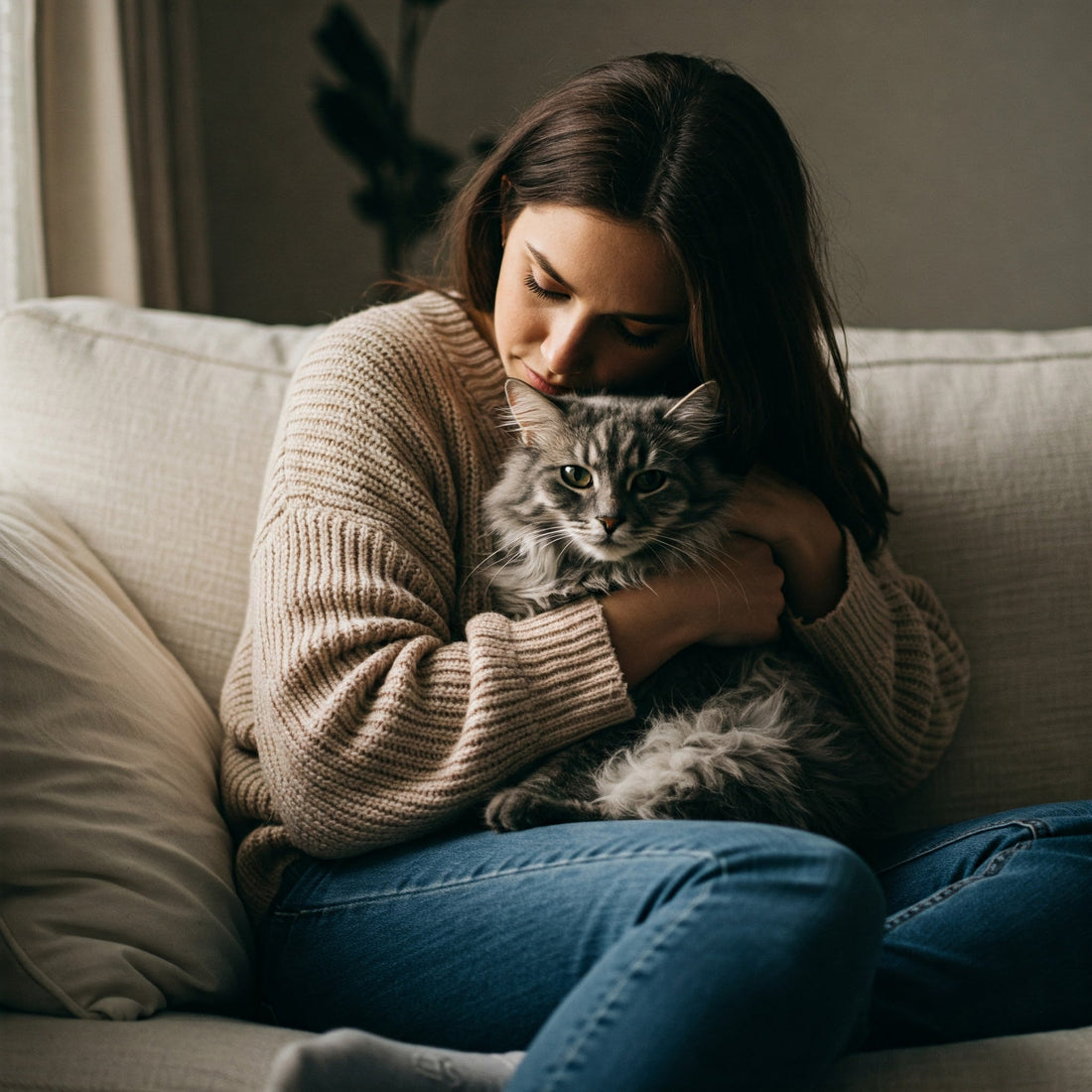
The Emotional Support of a Cat: More Than Just a Pet
Share
In a world that often feels chaotic and overwhelming, the presence of a cat can bring a sense of calm and comfort that is hard to replicate. Cats are more than just pets—they are companions, healers, and silent supporters who offer emotional stability in ways that words often fail to capture. Their quiet demeanor, gentle purrs, and intuitive nature make them exceptional emotional support animals, providing solace to those who need it most.

How Do Cats Provide Emotional Support and Improve Mental Well-Being?
The bond between humans and cats dates back thousands of years, yet it is only in recent times that we have begun to truly understand the depth of emotional support they provide. Unlike dogs, who wear their hearts on their sleeves, cats have a subtler way of connecting with their owners. They sense moods, offer quiet companionship, and often know exactly when to curl up beside someone who is feeling low. This intuitive behavior makes them perfect for emotional support, especially for those dealing with anxiety, depression, or loneliness.
One of the most remarkable aspects of cats is their ability to reduce stress. The simple act of stroking a cat’s soft fur can lower cortisol levels, the hormone associated with stress, while simultaneously increasing serotonin and dopamine, the chemicals responsible for happiness and relaxation. This physiological response is one of the reasons therapy cats are becoming more common in hospitals, nursing homes, and even schools. Their presence alone can transform an environment, making it feel safer and more comforting.

Cats also provide a sense of routine and purpose, which is especially beneficial for individuals struggling with mental health challenges. The responsibility of feeding, grooming, and caring for a cat creates structure in daily life, preventing feelings of aimlessness. For someone battling depression, the need to get out of bed to tend to their feline friend can be a small but significant step toward recovery. The unconditional love a cat offers—without judgment or expectation—can be a powerful motivator to keep going even on the hardest days.
Another unique aspect of cats is their independence. Unlike some pets that require constant attention, cats are content to simply exist alongside their owners. This makes them ideal for people who may not have the energy for high-maintenance companionship but still crave the warmth of another living being. A cat’s quiet presence can fill a room with comfort, offering silent reassurance that one is not alone.
For those who live alone, a cat can be a lifeline. The companionship of a feline friend eases the ache of solitude, providing not just company but also a sense of being needed. The soft purring of a cat at night, the gentle nudge of a head against a hand, or the playful antics that bring laughter into a quiet home—all these small moments add up to create a profound emotional impact.
Cats also have an uncanny ability to sense distress. Many cat owners report their pets becoming unusually affectionate during times of sadness or illness. Whether it’s curling up on a lap when tears are falling or staying close during a migraine, cats seem to know when their humans need them most. This intuitive empathy strengthens the bond between pet and owner, making the cat not just an animal but a true emotional ally.
Beyond individual benefits, cats also foster social connections. Cat owners often find themselves part of a larger community, whether through online forums, local pet groups, or casual conversations with fellow cat lovers. These connections can be invaluable, especially for those who struggle with social anxiety. Sharing stories, photos, or advice about cats can open doors to friendships and support networks that might otherwise have remained closed.
The healing power of a cat’s purr is another fascinating aspect of their emotional support. Scientific studies suggest that the frequency of a cat’s purr—between 25 and 150 Hertz—can promote healing in bones and tissues, reduce pain, and even improve breathing. While the exact mechanisms are still being studied, many believe that the vibrations of a purring cat have a therapeutic effect, both physically and emotionally. There is something undeniably soothing about the rhythmic sound of a content cat, a natural lullaby that eases the mind.
For children, cats can be especially beneficial. Growing up with a cat teaches empathy, responsibility, and emotional regulation. Children who struggle with anxiety or behavioral issues often find comfort in their feline companions, who provide a non-judgmental space for them to express their feelings. The bond between a child and a cat can be a source of stability in an otherwise turbulent world.
Even in grief, cats offer a unique form of solace. The loss of a loved one is one of life’s most painful experiences, and during such times, a cat’s quiet presence can be a balm for the soul. They do not offer empty words but instead provide a steady, loving presence that helps ease the weight of sorrow. Many people who have gone through loss describe their cats as silent guardians who helped them navigate their darkest days.
The emotional support of a cat is not limited to any particular age or circumstance. From young adults facing the pressures of modern life to elderly individuals coping with isolation, cats have a universal appeal. Their ability to adapt to their owner’s emotional needs makes them one of the most versatile and effective companions for mental and emotional well-being.

Cat Paws Heat Resistant Oven Mitts
In a society that often undervalues the importance of emotional health, cats serve as gentle reminders that sometimes the simplest forms of support are the most powerful. They do not need grand gestures or elaborate care—just love, attention, and a safe space to coexist. In return, they offer a kind of emotional anchoring that is rare and precious.
For anyone considering bringing a cat into their life for emotional support, the benefits are undeniable. Whether adopted from a shelter or welcomed as a kitten, a cat has the potential to transform a person’s emotional landscape in ways that are both subtle and profound. They are not just pets but silent healers, loyal friends, and irreplaceable companions.
The emotional support of a cat is a gift—one that keeps giving, day after day, in purrs, headbutts, and quiet moments of connection. In a world that can often feel cold and indifferent, a cat’s love is a warm, steady light, guiding their humans through the storms of life with grace and unwavering devotion.

